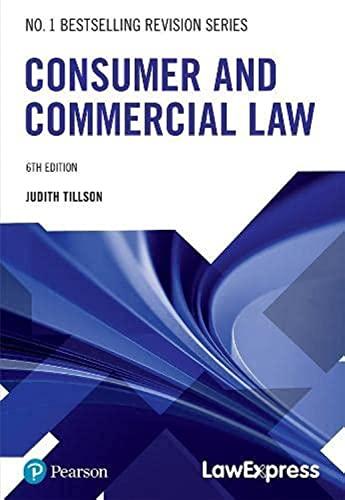Question
1) Priscilla Dickman worked as a medical technologist at the University of Connecticut Health Center. Dickman's supervisor received complaints she was getting personal phone calls
1) Priscilla Dickman worked as a medical technologist at the University of Connecticut Health Center. Dickman's supervisor received complaints she was getting personal phone calls and was frequently absent from her work area. Based on e-mails and other documents found on her work computer, the state investigated her for violations of state law. She was convicted of conducting "personal business for financial gain on state time utilizing state resources." Separate investigations resulted in convictions for forgery and the filing of an unrelated fraudulent insurance claim. Dickman "retired" from her job and filed a claim with the state of Connecticut against the health center, alleging that her former employer had initiated the investigations to harass her and force her to quit. For lack of "credible evidence or legal support," Dickman's claim was dismissed. Were any of Dickman's actions unethical? If so, identify the actions, and explain why they were unethical. [Dickman v. University of Connecticut Health Center, 162 Conn.App. 441, 132 A.3d 739 (2016)] (SeeThe Importance of Business Ethics.)
2) Rebecca Nichols drove a truck for Tri-National Logistics, Inc. (TNI). On a delivery trip, Nichols's fellow driver James Paris made unwelcome sexual advances. Nichols reported this behavior to TNI. Their employer left her with Paris in Pharr, Texas, for another seven days before sending a driver to pick her up. She filed a lawsuit in a federal district court against TNI, alleging discrimination on the basis of sex. Disputed facts included whether Nichols subjectively felt abused by Paris and whether TNI was aware of his conduct and failed to take appropriate action. Could TNI successfully file a motion for summary judgment at this point? Explain. [Nichols v. Tri-National Logistics, Inc., 809 F.3d 981 (8th Cir. 2016)] (SeeThe State Court Case Process.)
3) Galen Stoller was killed at a railroad crossing when a train hit his car. The crossing was marked with a stop sign and a railroad-crossing symbol. The sign was not obstructed by vegetation, but there were no flashing lights. Galen's parents filed a suit against Burlington Northern & Santa Fe Railroad Corp. The plaintiffs accused the defendant of negligence in the design and maintenance of the crossing. The defendant argued that Galen had not stopped at the stop sign. Was the railroad negligent? What was the proximate cause of the accident? Discuss. [Henderson v. National Railroad Passenger Corp., __ F.3d __ (10th Cir. 2011)] (SeeNegligence.)
Step by Step Solution
There are 3 Steps involved in it
Step: 1

Get Instant Access to Expert-Tailored Solutions
See step-by-step solutions with expert insights and AI powered tools for academic success
Step: 2

Step: 3

Ace Your Homework with AI
Get the answers you need in no time with our AI-driven, step-by-step assistance
Get Started


